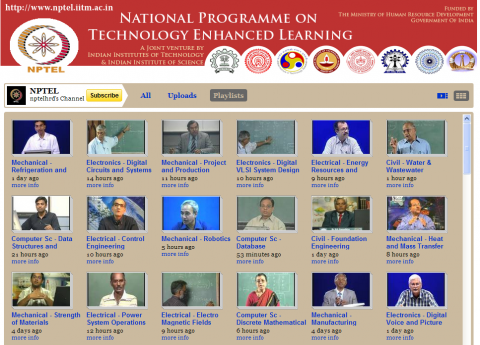A great year for open education got even better with the launch of Marginal Revolution University. Founded by Tyler Cowen and Alex Tabarrok, two econ professors at George Mason University, MRUniversity promises to deliver free, interactive courses in the economics space. And they’re getting started with a course on Development Economics, a subdiscipline that explores why some countries grow rich and others remain poor. In short, issues that have real meaning for everyday people worldwide.
In an announcement on the Marginal Revolution blog last month, Cowen outlined a few of the principles guiding the project:
1. The product is free, and we offer more material in less time.
2. Most of our videos are short, so you can view and listen between tasks, rather than needing to schedule time for them. The average video is five minutes, twenty-eight seconds long. When needed, more videos are used to explain complex topics.
3. No talking heads and no long, boring lectures. We have tried to reconceptualize every aspect of the educational experience to be friendly to the on-line world.
4. It is low bandwidth and mobile-friendly. No ads.
5. We offer tests and quizzes.
6. We have plans to subtitle the videos in major languages. Our reach will be global, and in doing so we are building upon the global emphasis of our home institution, George Mason University.
7. We invite users to submit content.
8. It is a flexible learning module. It is not a “MOOC” per se, although it can be used to create a MOOC, namely a massive, open on-line course.
9. It is designed to grow rapidly and flexibly, absorbing new content in modular fashion — note the beehive structure to our logo. But we are starting with plenty of material.
10. We are pleased to announce that our first course will begin on October 1.
Bookmark MRUniversity and look out for its curriculum to expand. In the meantime, you can explore more Free Online Economics Courses, a subset of our meta collection, 1,700 Free Online Courses from Top Universities.
Related Content:
MIT’s Introduction to Economics: A Free Online Course
Free Online Economics & Finance Courses
Mastering Econometrics: A Free Online Course





